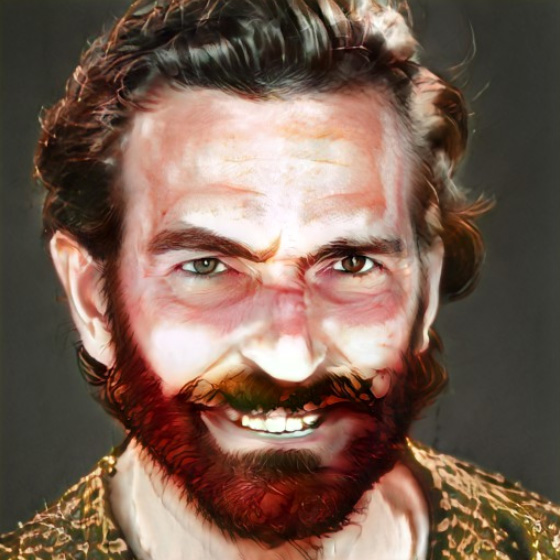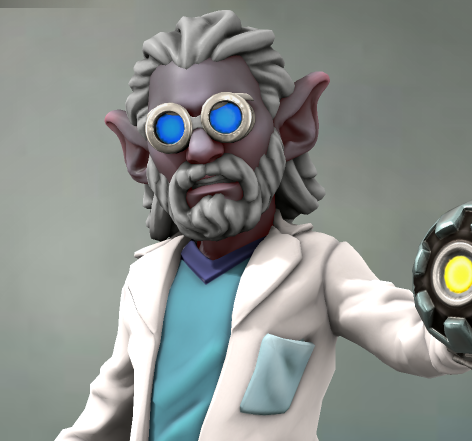You once promised me forever
blighted
a day, a minute
tormented, troubled
Put to rest, in purgatory
I disappear into the sea
Hubert Deepburrow Thorow, more commonly known as H.D. Thorow, or just "H.D.", was a famous
halfling bard of the 53rd Century AtD.
In these times he is perhaps best known for a collection of poems and songs that have become popular
shanties sung aboard ocean going vessels across
The Azure Sea.
Early Life
Little is known about Hubert's early years. He was born around 5250 AtD and almost certainly raised in the
Keylands of the emerging
Cerulean Empire. Whilst no formal autobiography exists, there are many references in his early works regarding the "
fields of golden wheat" and the "
struggles of the sons of the soil" that display a familiarity with that land that can only have come from living a life there.
It is likely that the young Hubert was exposed to the folk tales and music of that time, and he must have displayed some aptitude for musical skills for he was sent to the the large metropolis of
Keymouth to study under the tutelage of the pastors of
The Artists' Shrine.
It was in the bustling streets of the capital city that Hubert began his long association with civil concerns.
Civil Concerns
It is clear that Hubert always felt a close affinity with the natural world. Indeed it is the subject of his most famous works, especially the volume of poetry entitled "
Sons and daughters of the green revolution". Whilst studying at
The Artists' Shrine he instigated the simple habit of "going outside the city for a walk", and it quickly caught on with the other students.
Watching the walls of the, at that time, still young city slowly expand out into the fields of the farmers and smallholders seemed to have a great effect on the young
halfling. In 5276 he wrote the following.
The city crashes down on the lives of the small folk like a great wave, washing away their communities and drawing them back into it's depths. What price progress when the lives of simple folk are lost, and with them the gardens they tend, the folk tales they tell, and the brotherhood they live?
It was obvious to his friends that H.D. was becoming quickly disillusioned with city life. Around that time he lead several protests against the city senate, writing "the government that governs best governs least". He was even branded an anarchist by several senators of the time.
Walking Songs
It was not long after these events that Hubert left
Keymouth for good, and headed out into the wilderness to build himself a life "
free of the chains of progress, a life lived without duress, abandoned to nature's caress".
He travelled widely, supporting himself with musical performances and poetry readings in taverns across the western shores, slowly building his renown as a great teller of tales. Many of these were focussed on the folk stories of old, especially those relating the myths of the
Fearwyd Weald.
As he later told Captain Thane Fulton, on whose ship he served as mate and piper, "
I ventured into the dark forest because I desired a life lived in deliberate opposition to modern practises. I wanted to get to the essence of the world, free of distraction, and gorge myself on the machinations of mother nature".
For a while Hubert disappeared into the wilderness, but emerged some years later and found a new life as a freebooting sailor, and seemingly even more sure of his aversion to civic society.
A Life of Skulls and Bones
In 5319 AtD a folio of songs entitled "
Songs to Sail By" was published by a small music house in
Eastcliff. They initially found little interest in the small settlement, but two years later they were "discovered" by scholars of the
Telvanta Academy in
Keymouth and proclaimed "the greatest collection of folk songs ever written".
This collection of songs was the result of the last twenty years of Hubert's life. During that time he sailed
The Azure Sea extensively, revelling in such exposure to the natural world and free of the fetters of civilisation. It was reportedly the happiest and also most productive period, in terms of composition and art, in his life.
Almost five hundred years later many of the songs contained in the folio are still sung as
shanties aboard ships in waters of all kinds.
Yet despite this success and apparent comfort with his life, Hubert was still not satisfied. His writings became even more concerned with the "
evils of civilised life, that cover petty nastiness with the cloak of civil duty". His travels lead him into
The Southern Chain and the small but growing community of buccaneers.
The life of a buccaneer suited the
halfling even more than that of a professional seaman. He found like-minded folk amongst the fledgling pirate settlements, and started to organise a "
better way of life". Trusting that his philosophy could be taught through song and poetry, Hubert founded a new college of music, the
College of Skull and Bone. Over the years it would grow into a popular, if anarchic, college of bards.
Yet once again, Hubert moved on. This time he was forced away, rather than deliberately leaving of his own accord. Some of his philosophies were twisted by the less socially-minded members of the buccaneer community, and used to justify terrible pirate raids on more civilised shores.
Hubert reportedly tried to stop these attacks, but their leaders cared not for anything more than booty and freedom, and were willing to kill to protect their interests.
After an attempt on his life by the Pirate Captain One-tooth Holton, Hubert was forced to flee, and once again headed for the place he felt most at home - the wilderness. Just before leaving, in 5332 AtD, he issued his final published work, the play for theatres, "The Knight's Errand", then disappeared.
A Quiet Repose
The location where Hubert fled became a mystery for many years. Only recently, in 5782 AtD, did news of his final years eventually reach the ears of the Empire. The famed cartographer
Senia Kiren solved the mystery during one of her most recent expeditions.
On the Isle of
Marduff, under the trunk of a lone southern beech tree in a remote verdant valley, she found a gravestone. Etched into it's weather-beaten surface were the words "
H.D. - His words were ships carrying the cargo of hope across the sea of life".
Investigating further, she discovered some of the tale of Hubert's final years.
Arriving on
Marduff around 5334 AtD, Hubert had returned to a solitary life, trading tales with the indigenous Mardufolk of the verdant valleys of the island. There he had spent the last years of his life studying the ways of the druid, abandoning the path of a bard for the path of a priest of nature. His influence may not have been as great, but it may be that his heart had finally found a place it could rest.
He is reported to have died in
Flocktime 5361 AtD.
Famous Works
The influence of Hubert Deepburrow Thorow cannot be understated. From his songs still sung across the seas of the world, to his role in the formation of the pirate holds of
The Southern Chain, to the founding of the
College of Skull and Bone, his works have changed and formed the very basis of modern society.
The following list, by no means exhaustive, details his most famous and influential works.
| 5276 AtD |
Sons and Daughters of the Green Revolution |
A collection of poems and essays regarding the life of pastoral folk and the demands put on them by governments. |
| 5286 AtD |
Tavern Tales of the Cerulean Territories |
Traditional folk tales told in villages of the Cerulean Empire set to music written by H.D. Thorow. |
| 5319 AtD |
Songs to Sail By |
Perhaps H.D. Thorow's most well-known work. A collection of songs and shanties inspired by a life at sea. |
| 5324 AtD |
Tide and Sand |
A seemingly random collection of poems and songs that, when told together in the correct order, relate the tale of a shipwrecked mariner who finds love with a merfolk. |
| 5332 AtD |
A Knight's Errand |
A play in three acts concerning the tragic fate of a young knight who sets out to defeat a beast that turns out to be his own pride. |
H.D Thorow is loosely and lovingly inspired by the real 19th Century poet and writer Henry David Thoreau.










I'm in awe. The pacing of the article and how you lay out all the details give such a crystal clear picture. I feel like I can almost hear HD talking to me. Well done! Breathtaking!
Thanks Kummer Wolfe!